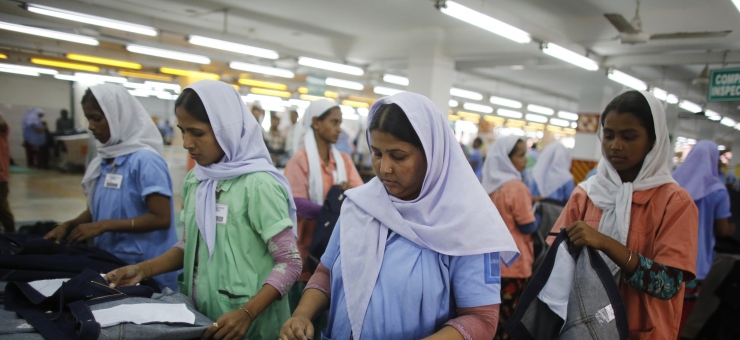UNI renews call for ILO Convention on Global Supply Chains

UNI Global Union says ILO right to take strong stand to ensure decent work is part and parcel of global supply chains
A key outcome of the recent International Labour Conference was the resolve of the ILO to make decent work part of the DNA of global supply chains. This was a priority for the global unions who had put in two years of solid preparatory work to bring this result. UNI Global Union General Secretary, Philip Jennings, said “I am proud of the contributions made by so many to ‘making it happen’.”
Jennings continued, “UNI backs the call for an ILO Convention on Global Supply Chains. The situation is critical with more than one fifth of the global workforce having a job in the global supply chain and millions more who are ‘hidden’ workers. At the ILC last week unions joined with the ILO in looking at ways to create real change in global supply chains. We welcome the call to action.”
A joint statement from employers, workers and governments was agreed following the ILO discussion on how to promote decent work through the many layers of global supply chains. A formal examination of governance gaps and standards sets the scene to reinforce existing standards and to look at a new international standard designed to protect workers in supply chains.
“We worked out what needs to be done to ensure that the ever increasing organization of production in global supply chains contributes to the promotion of decent work. We began the job of delineating the way that decent work can and must contribute to peace and stability in the wake of conflict, crisis or disaster,” said ILO Director-General Guy Ryder in his closing remarks to the ILC.
ITUC General Secretary, Sharan Burrow said, “A convention that requires governments to hold companies to account is essential and these conclusions allow this debate to continue. Equally the ITUC will continue to make the case to Governments that legislation that holds companies based in their countries legally accountable through mandating ‘’due diligence’’ by companies throughout their supply chain would fill a gap in global governance.”
Jennings added, “The Bangladesh Accord is the best of example of how a global supply chain can be changed to improve the lives of workers. More than 230 brands have now signed up to the Accord and accepted they have responsibility towards all workers in their supply chains from the shop floor to the factory.”
The Bangladesh Accord featured throughout the ILC discussions in the face of resistance which was held to be Walmart inspired, by those who wished to belittle the progress made.
The ILO will have to expand its role and capacity to fulfill the ambitions of the ILC 2016, we see it as a key player in creating sustainable and responsible global supply chains. As a tripartite organisation its Conventions along with the UN Guiding Principles on Business and Human Rights and the OECD Guidelines for Multinationals set standards that when applied will change the lives of millions of workers for the better. We now look to the G20 hosted by Germany in 2017 to follow through.
Background on Global Supply Chains at ILC
The ILO Committee on Decent work in Global Supply Chains held nine days of intense tripartite discussions to explore how global supply chains can effectively contribute to decent work and sustainable development.
The Committee adopted by consensus a resolution and set of action-oriented conclusions. These give a strong mandate to the ILO to lead the global call for action to bridge governance gaps in sectoral, national, regional and international supplychains.
The ILO members called upon the Organization to implement a timely and dynamic programme of action and to convene, by decision of its Governing Body, a tripartite meeting to assess the failures that lead to decent work deficits in global supply chains, identify salient challenges of governance, and consider what programmes, measures, initiatives or standards are needed to promote decent work in global supply chains.
See here ILO’s Decent Work in Global Supply Chains report which informed the discussions at the ILC 2016

